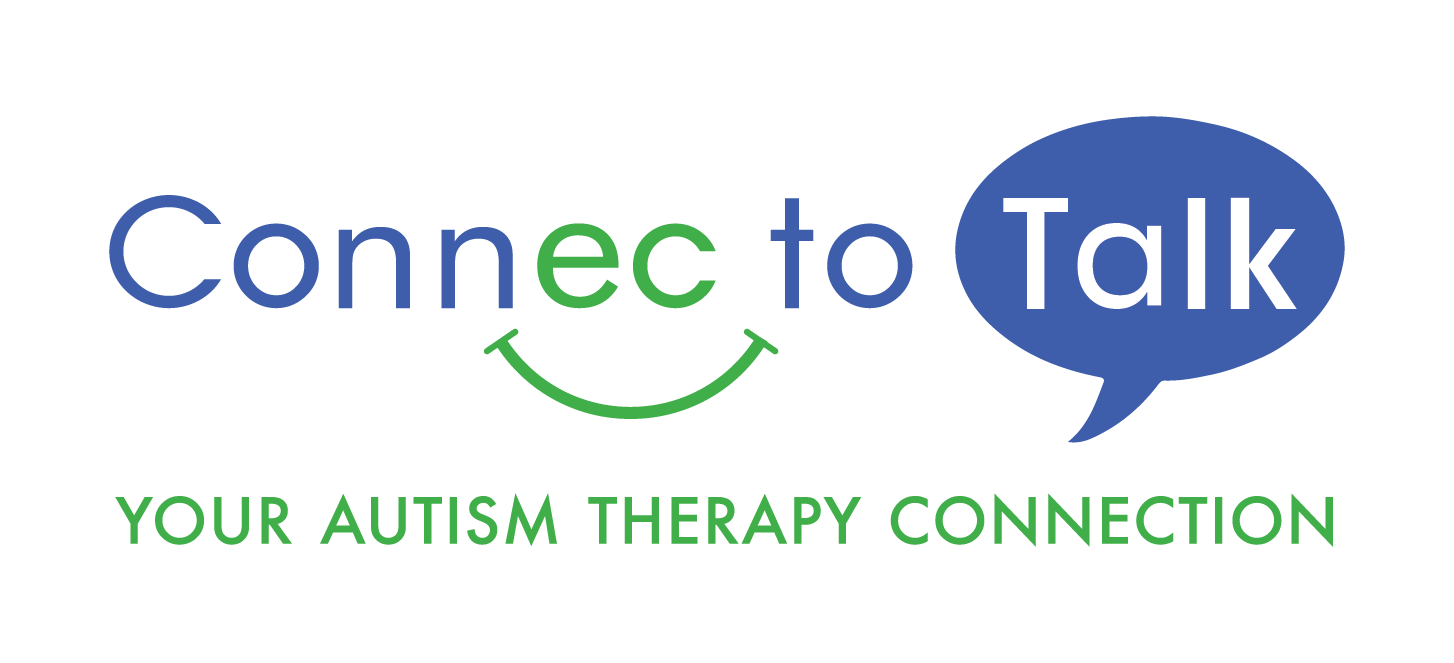![An Interview With A BCBA At Connec-to-Talk, we pride ourselves on providing an enriching, play-based learning experience for our clients. None of our clients’ progress would be possible, however, without our passionate clinicians. We wanted to switch up our blog this month and take the opportunity to shine the spotlight on one of our Danbury employees, Sami. Sami is the […]](https://connec-to-talk.com/wp-content/uploads/2025/04/Featured-Employee-Post-Blue-and-Green.png)
Sami is the perfect embodiment of the phrase “promote from within your organization” and emblematic of the professional growth we want to see for our employees. Having started with Connec-to-Talk in 2021, Sami has progressed from a front line therapist to a Clinical Coordinator to now a Board Certified Behavior Analyst. Sami sat down with us to discuss her thoughts on Connec-to-Talk and the ABA field. Please read on for some highlights of our discussion below.
“My first experience with supporting individuals diagnosed with ASD was in a day-hab facility during one of my undergraduate internships. I was placed in the adult program that would frequently take our clients to a company-wide social group area with the children on their campus. This experience then led me to nannying for multiple families that had children with varying disabilities and support levels. One of the parents mentioned a referral to ABA therapy which caused me to research ABA. I found a developmental therapist position posted, applied for CTT, and the rest is history!”
As with many of our most promising staff, Sami didn’t come to Connec-to-Talk with ABA experience. Rather, a passion for helping people proved enough of a foundation to ensure her success at the company.
Why have you stayed with Connec-to-Talk for so long?
“There was this one pivotal moment in the first few months of working with CTT where I vividly remember not feeling heard by one of the staff training me at the time. One of my direct supervisors on the case, Shane, emailed me that evening with encouraging words and actively listened to my feedback even though I never mentioned anything to them about my concern. It was subtle, respectful, and supportive enough to make me feel not only valued on this client’s behavior team, but also confident in my skills and abilities. This made me want to be able to support my peers and future staff in the same capacity as my supervisor had supported me then. As time continued, my peers and direct supervisors have consistently pushed me to be the best clinician I can be, while simultaneously tactfully acknowledging the areas of growth I can focus on to better serve my clients and their families. There are a multitude of opportunities at CTT to grow both professionally and personally, and all of the challenges in each of the roles I have held [developmental therapist, RBT, the Danbury Clinical Coordinator, and presently, a BCBA and our RBT Requirements Coordinator] have shaped me into the practitioner I am today!”
What’s something that you think people get wrong about ABA?
“I think people have a misconception that ABA has not evolved since its founding based on outdated practices and unethical interventions. As the field is ever-changing and updating with research, legal and ethical standards, and behavior intervention developments, utilizing appropriate and individualized accommodations for all clients we serve is essential.”
We love Sami’s take on the evolution of ABA. Several of our blogs this year have been focused on ensuring more equitable access to care in terms of autism diagnoses and subsequent services.
If you could make any changes in the field, what would they be?
“Alongside the vital updates continuing in our field including more scientific-based conversations, empathetic, and understanding practices that meet our clients where they are and grow from there, I would like to see the ABA field as a whole, encourage and actively work towards, collaborating more with all members of a treatment team to ensure the client’s success is at the forefront. While we must remain within our scope of competency and practice, all members of a client’s treatment team (Caregivers, SLPs, OTs, Teachers, Pediatricians, etc…) should be able to work together to educate, respect, and support each other’s practices to ultimately improve our client’s overall skill acquisition and quality of life.”
Interdisciplinary cooperation is critical to a child’s success. Please be sure to speak with your BCBA on how we can better support your child’s goals.
What’s something you’d like to see Connec-to-Talk do more of?
“I would like to see Connec-to-Talk incorporate more community-based projects that allow for shared resources with our families and inclusivity accommodations such as hosting seasonal get-togethers like a “Trunk-or-treat,” or an “Ice-cream social” where our clients are able to gain experiences to practice and apply their skills. Many families inquire about supporting their children in community settings such as playgrounds, fairs, birthday parties, etc… so it would be wonderful if we had the opportunity to work on these skills in smaller, similar environments while emphasizing our play-based learning model to generalize to their public experiences.”
Sami is very aligned with Connec-to-Talk’s vision for the future. We, as an organization, plan to prioritize more community outreach and opportunities in 2026!
Do you have any recommendations for clinicians experiencing burnout?
Burnout is a huge topic that Connec-to-Talk is currently exploring. In order to provide clients with the care they deserve, we need to ensure that our staff are well-looked after as well. During our discussion, Sami brought the conversation back to our model of play-based learning. Regardless of age, we all need access to laughter, play, and fun in order to grow. She then continued to pass on advice she received from a colleague.
“Burnout will be a part of any clinician’s life as what we do on a day-to-day basis is intensive and can be physically, mentally, and emotionally taxing. The best advice I was given, and continue to pass along, is to “use ABA on yourself- the science works, so try it out!” Essentially, make sure to reinforce yourself after you work hard! It can be a small reinforcer, like stopping on your way home from work to get that new iced coffee. Or you can change your environment to support better behaviors, such as removing access to unhealthy habits, or recognize that you need a break to take time to practice your self-regulating skills and set down your laptop on the weekend to instead spend time with your preferred pets or people. It’s very easy to get lost in the data, paperwork, deadlines, and chaos of our field, but don’t forget that ABA works-so you can use your training to shape and reinforce your own behaviors, too!”
If you are interested in learning more about career ABA Therapy Careers opportunities at Connec-to-Talk, please e-mail Katherine Lewis at [email protected]. We look forward to having you join our team!



Leave a Reply